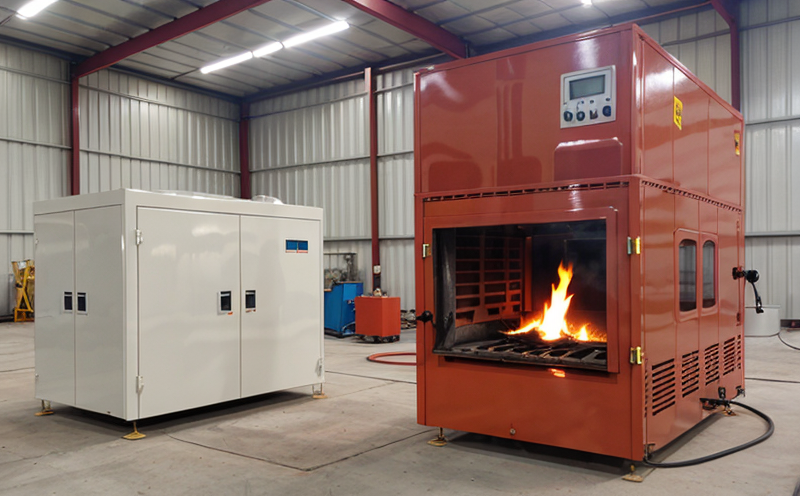ISO 18125 Solid Biofuels Calorific Value Testing
The ISO 18125 standard specifies methods to determine the calorific value of solid biofuels. This is a critical parameter as it directly impacts the performance and efficiency of biofuel utilization in various industrial applications, including power generation, heating systems, and transportation fuels.
The calorific value provides insight into the energy content per unit mass or volume of the fuel, which is essential for optimizing combustion processes, reducing operational costs, and ensuring compliance with regulatory standards. In metallurgy and material testing, understanding these values helps in evaluating the suitability of biofuels for different industrial sectors.
The testing process involves several steps to ensure accuracy. Initially, the sample preparation is crucial; it includes grinding the solid biofuel into a consistent particle size that allows for uniform heating during calorimetric analysis. The sample should be homogeneous to avoid discrepancies in test results.
Once prepared, the sample is placed in a bomb calorimeter, where it undergoes combustion in an oxygen-rich environment. The heat released during this process is measured and converted into the calorific value using specific formulas defined by ISO 18125. This conversion accounts for factors such as moisture content, ash, and volatile matter that might affect the final result.
The accuracy of these measurements is paramount in ensuring reliable data for decision-making processes within industries reliant on biofuels. Compliance with international standards like ISO ensures consistent and comparable results across different laboratories worldwide.
Understanding the calorific value also aids in product development by providing insights into potential improvements or adjustments needed to enhance fuel efficiency. For instance, identifying areas where combustion inefficiencies occur can lead to better formulations of biofuels tailored specifically for industrial applications.
In conclusion, ISO 18125 solid biofuels calorific value testing is more than just a compliance requirement; it plays a vital role in optimizing industrial processes and ensuring environmental sustainability. By adhering strictly to this standard, laboratories can provide accurate and reliable data that contribute significantly to the advancement of sustainable energy solutions.
Benefits
- Ensures accurate and reliable calorific value measurements, critical for optimizing industrial processes.
- Facilitates compliance with international standards, enhancing credibility and trustworthiness in the market.
- Supports research and development efforts by providing precise data on biofuel performance.
- Aids in identifying areas for improvement in fuel formulations to enhance efficiency and reduce costs.
Industry Applications
The ISO 18125 calorific value test finds extensive application across various industries, including power generation facilities, industrial boilers, and transportation sectors. By ensuring consistent energy content in biofuels, this testing supports sustainable practices and reduces environmental impact.
In the power sector, accurate calorific value data helps operators select optimal fuel types based on efficiency and cost-effectiveness. This not only improves plant performance but also contributes to lower carbon emissions through better resource management.
For industrial boilers and heating systems, understanding the calorific value allows for precise control of combustion processes, leading to improved heat transfer rates and reduced fuel consumption. Consequently, this translates into significant operational savings over time.
In transportation fuels, particularly in biofuel blends, knowing the calorific value ensures consistent performance across different vehicles and applications. This consistency is vital for maintaining fleet reliability and reducing maintenance costs associated with fuel-related issues.
Why Choose This Test
Choosing ISO 18125 solid biofuels calorific value testing offers numerous advantages over alternative methods or less stringent approaches. The standardized procedure ensures consistency in results, enabling accurate comparisons between different samples and laboratories.
This consistency is particularly beneficial for quality managers looking to maintain high standards of product performance across their operations. Compliance officers can rely on this test to ensure adherence to regulatory requirements without compromising on accuracy or reliability.
For R&D engineers, the precise data provided by ISO 18125 supports innovative developments aimed at improving biofuel efficiency and sustainability. Similarly, procurement teams benefit from having reliable calorific value information when selecting suppliers and negotiating contracts.
The use of this test also fosters a culture of continuous improvement within organizations, driving efforts towards more efficient and environmentally friendly practices in the utilization of solid biofuels.





